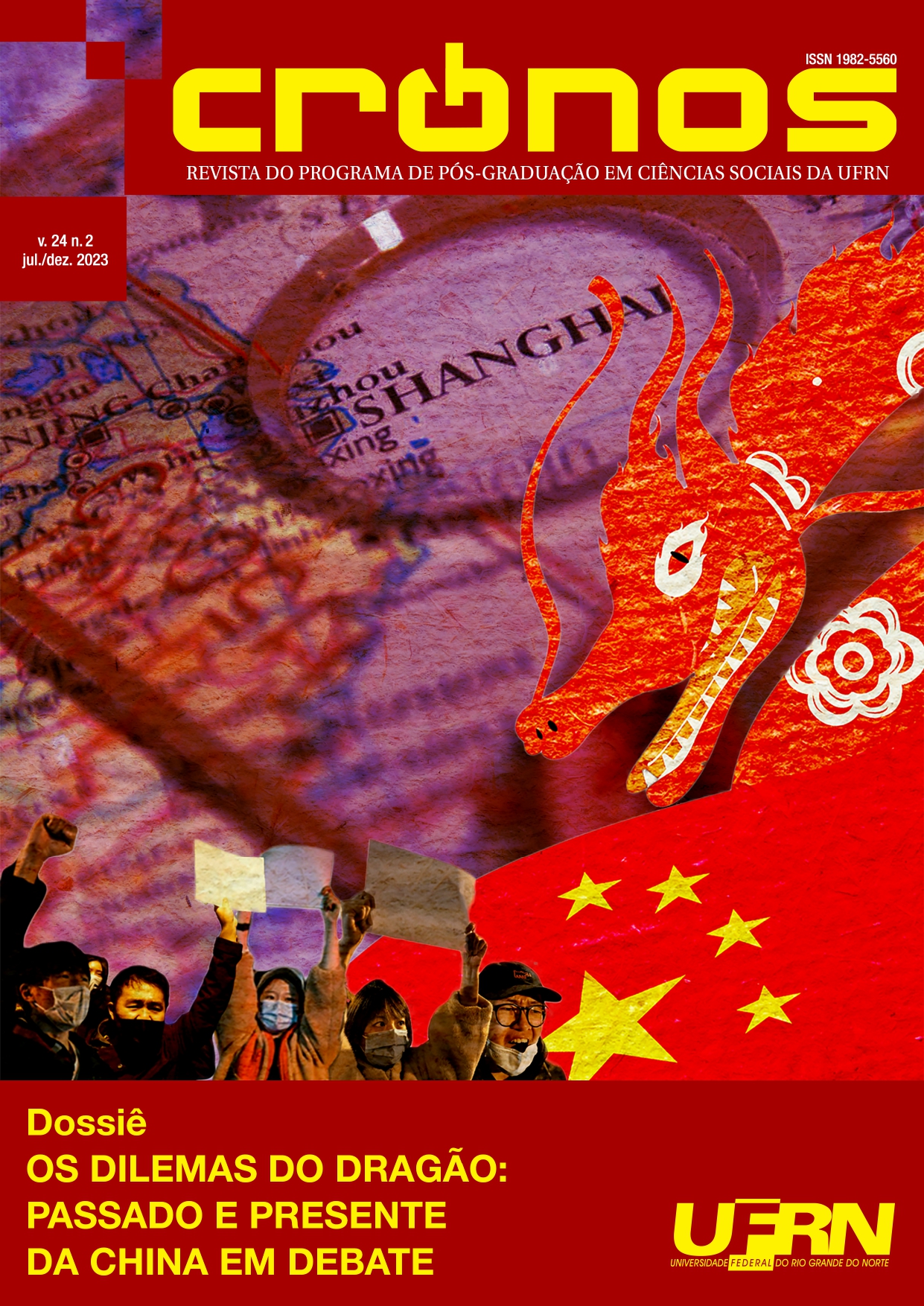CAUSAS SUBJACENTES DA ESCALADA DAS TENSÕES SINO-ESTADUNIDENSES
DOI:
https://doi.org/10.21680/1982-5560.2023v24n2ID35300Palavras-chave:
República Popular da China, Estados Unidos da América, guerra comercial, imperialismoResumo
O presente artigo visa salientar algumas das causas do acirramento crescente das tensões entre EUA e China nos últimos anos. A restauração do capitalismo na China foi essencial para a superação da crise capitalista internacional da década de 1970, possibilitada pela transferência de boa parte da atividade manufatureira situada, até então, nos países centrais para a Ásia. Até 2008, o crescimento econômico mundial foi motorizado pelas exportações manufatureiras asiáticas – chinesas, sobretudo – para os EUA, e pela sustentação dos déficits comerciais estadunidenses por meio da aquisição de títulos do Tesouro deste país pelas economias comercialmente superavitárias. A forte retração do comércio mundial que se seguiu ao estouro da bolha imobiliária estadunidense açodou a transição da China a um novo padrão de acumulação, cujo dinamismo provenha mais do consumo das famílias e da inovação autóctone do que das exportações e dos investimentos, além de ocasionar uma drástica expansão das exportações de capital chinesas. Este aumento da internacionalização do capital, e também das capacidades tecnológicas da China, contrasta com a baixa produtividade da economia chinesa e com outras vulnerabilidades que o país ainda sofre nos âmbitos financeiro, militar e até cultural e ideológico. Assim, a China ainda não é capaz de contestar a hegemonia estadunidense, embora já se equipare aos EUA e a outras potências mundiais em vários aspectos parciais.
Downloads
Downloads
Publicado
Como Citar
Edição
Seção
Licença
Copyright (c) 2024 Revista Cronos

Este trabalho está licenciado sob uma licença Creative Commons Attribution-NonCommercial-ShareAlike 4.0 International License.


 English
English Español (España)
Español (España) Português (Brasil)
Português (Brasil)


